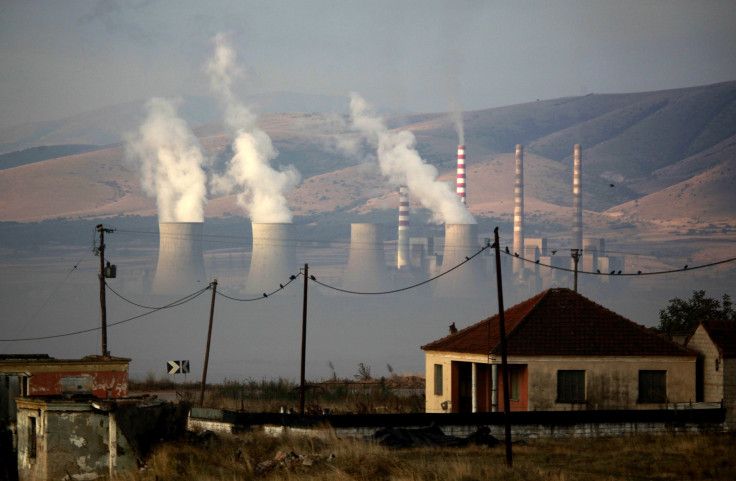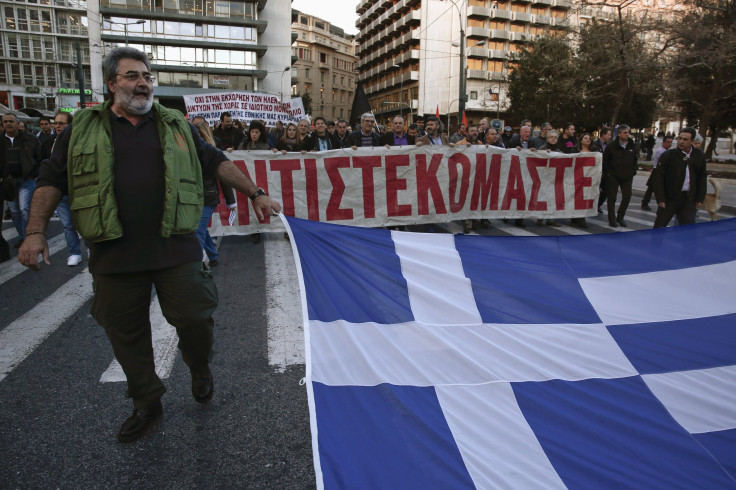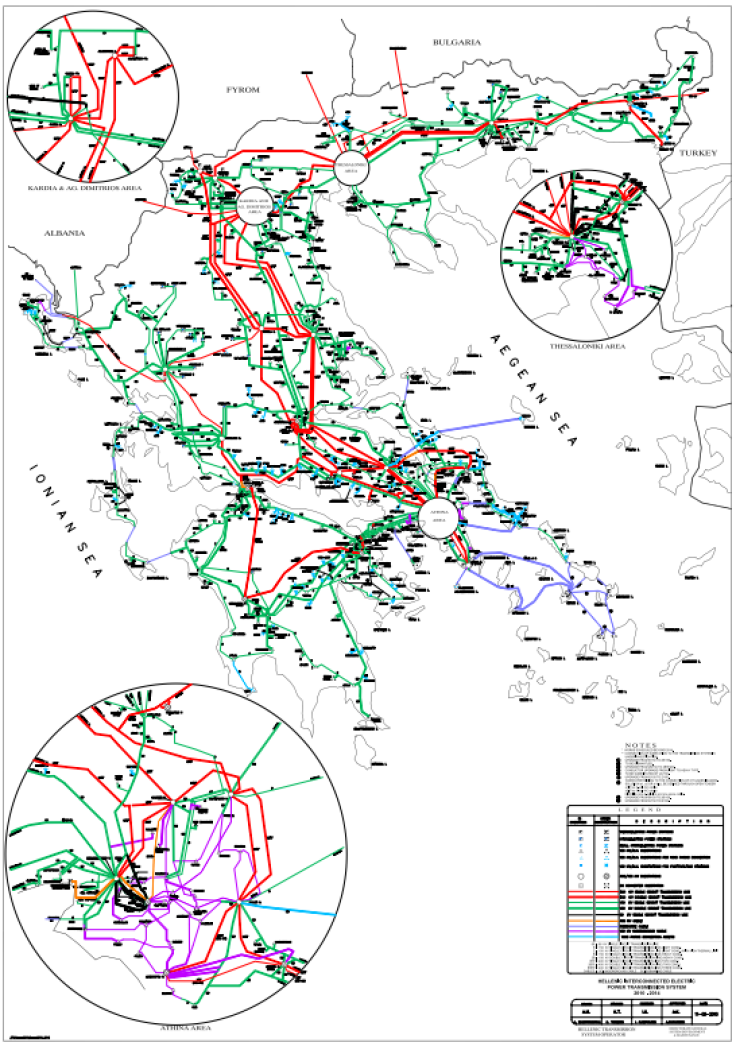Greek Debt Crisis: New Greece Deal Reignites Contentious Plan To Privatize Country's Power Grid

The sweeping plan to save Greece from its crushing debt includes a contentious measure to sell the country’s $1.5 billion electricity transmission network. The three-year agreement reached Monday in Brussels would require Athens to privatize the power grid -- a move Greek officials have staunchly opposed in the past.
The sale of Greece’s Independent Power Transmission Operator, known by its Greek acronym ADMIE, is among the dozens of demands by the European Union and International Monetary Fund to salvage the floundering Greek economy. Prime Minister Alexis Tsipras is now tasked with rushing the measures through Greece’s parliament by Wednesday.
The move is a stark turnaround for Tsipras, who along with Energy Minister Panagiotis Lafazanis has lashed out against earlier efforts to privatize the power grid, the state natural gas company and Greece’s main utility, the Public Power Corporation (PPC). “Not one single privatization will take place in the energy sector,” Lafazanis told Ta Nea newspaper in February, saying he considered energy a strategic national asset.

Yet Greek policymakers are left with little choice but to accept the plan accepted by eurozone leaders this week, said Mujtaba Rahman, who heads the Europe research team at Eurasia Group, a political consulting firm.
“There are limited degrees of freedom” with the bailout deal, he said. “Privatization, especially on the energy side, is central to the bailout. … A big fiscal adjustment implies raising revenue from additional sources, and privatization is one of those sources.”
The deal reached Monday stipulates Greece must proceed with efforts to privatize ADMIE, unless adequate alternatives can be found. The power operator -- a wholly owned subsidiary of the utility PPC -- operates more than 7,000 miles of overhead, underground and submarine transmission lines and nearly 300 substations throughout the country.
Greek officials in 2013 began developing a plan to sell off 66 percent of ADMIE shares, with the Greek government retaining a minority share in the grid operator. Last fall, ADMIE executives said four companies had been shortlisted to bid for the majority stake: Italian grid operator Terna, Belgian power grid operator Elia, State Grid Corp. of China, and Canadian pension fund PSP Investments.
Supporters of privatization in the Greek government reasoned that selling state assets could attract much-needed investment to the country. For private operators, the Greek network offers a strategic opportunity for growth in southeast Europe and the western Balkan region. Its transmission lines connect with those in neighboring Albania, Macedonia, Bulgaria and Turkey.

But privatization plans swiftly unraveled following Tsipras’ election in January. The newly elected prime minister put bids for ADMIE and other public entities on hold. Energy Minister Lafazanis’ anti-privatization comments in February further confirmed the government's change in tenor. At least one company, Italy’s Terna, dropped its bid for Greece’s grid operator.
Monday’s bailout agreement could see Greece reopening the asset sale, though the terms are still unclear.
Rahman of Eurasia Group said Tsipras' support for a privatization plan sends an important message to its European creditors. "It's a litmus test: Are they willing to move forward with market reforms or not? Privatization is important from that perspective," he said. "Every little bit counts in a situation where you're as bankrupt as this government is."
Jan Kalicki, a public policy fellow at the Wilson Center in Washington, D.C., said privatizing Greece’s power network is only the first of several steps needed to revamp the country’s electricity industry. He said Greece also will need to diversify its energy supplies and lower its emissions of carbon dioxide pollution to strengthen the system long-term. About half of Greece’s electricity is fueled by lignite coal reserves, while the rest comes from Russian-supplied natural gas and local hydroelectric power.
“Like other areas where they’re tightening their belts, it will be important for the Greeks to meet their immediate fiscal requirements, but then go beyond that to meet their long-term energy needs,” Kalicki said. “The proposed privatization is a necessary but insufficient installment toward energy security for Greece.”
© Copyright IBTimes 2024. All rights reserved.











